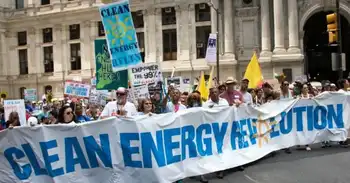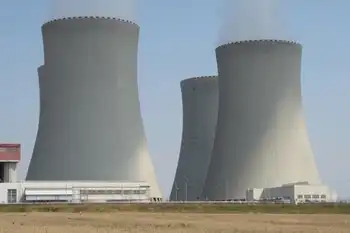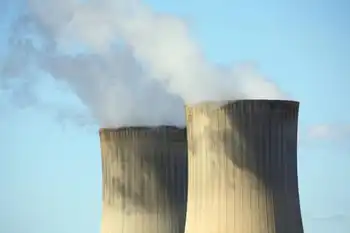College students protest coal use on campuses
By Associated Press
Protective Relay Training - Basic
Our customized live online or in‑person group training can be delivered to your staff at your location.

- Live Online
- 12 hours Instructor-led
- Group Training Available
Students at the University of Missouri and other schools nationwide mounted a Sierra Club-led campaign targeting coal-based power at colleges, whether generated at on-campus plants or purchased from private utilities. The campaign began the same day a group of college presidents rallied in Washington in support of clean energy legislation.
Student organizers said colleges have a societal obligation to reduce and eventually eliminate coal use in favor of renewable energy. At Missouri, the school used more than 48,000 tons of coal to generate electricity in 2007, accounting for 80 percent of campus energy use.
A Sierra Club report singled out UCLA, Oregon State, Indiana, Minnesota, North Carolina and five other schools along with Missouri. The environmental group identified 60 campuses with their own coal-burning power plants, including Georgia, Penn State and Virginia.
"University campuses have been at the forefront of many of the most important movements in history," said Mallory Schillinger, a senior from St. Louis County. "Global warming is where the fight is at, and the most crucial part of that fight — coal — is located right here on our campus."
In recent years, several schools have opted to forego campus coal plants in response to student protests and regulatory scrutiny.
A 2007 Sierra Club lawsuit charging the University of Wisconsin with violating federal pollution standards and a subsequent court ruling led that state's governor to endorse a $251 million project to convert the school's coal boilers to instead burn paper pellets and wood chips.
Northern Michigan University withdrew plans to use coal as a backup fuel in its new power plant after the federal Environmental Protection Agency declined to issue an air permit. The new plant will burn only wood products.
And Ball State University is moving to eliminate coal use as it creates what the Sierra Club says is the nation's largest closed geothermal energy system on its campus.
In response to the protest, Missouri's sustainability office issued a statement outlining its efforts to reduce fossil fuel use.
Among the projects planned is a new biomass boiler that will replace a coal-fired unit and reduce the school's coal usage by up to 25 percent. The school is also a member of a broader university presidents' initiative on climate change.
"We're very proud of our sustainability efforts, but we know we have more work to do," said Steve Burdic, Missouri's sustainability coordinator.
Statewide, Missouri generates more than 80 percent of its electricity from coal. That reliance accounts for the state having the fourth-lowest energy prices in the country, according to the American Coalition for Clean Coal Electricity.
A spokeswoman for the northern Virginia-based energy group said the new campaign will hurt the state's economy and could lead to increased college costs for Missouri students and their families.
"It's certainly not a proposal the people in Missouri are going to get behind," said Lisa Camooso Miller. "What is the cost for developing these kinds of fuel sources?"











